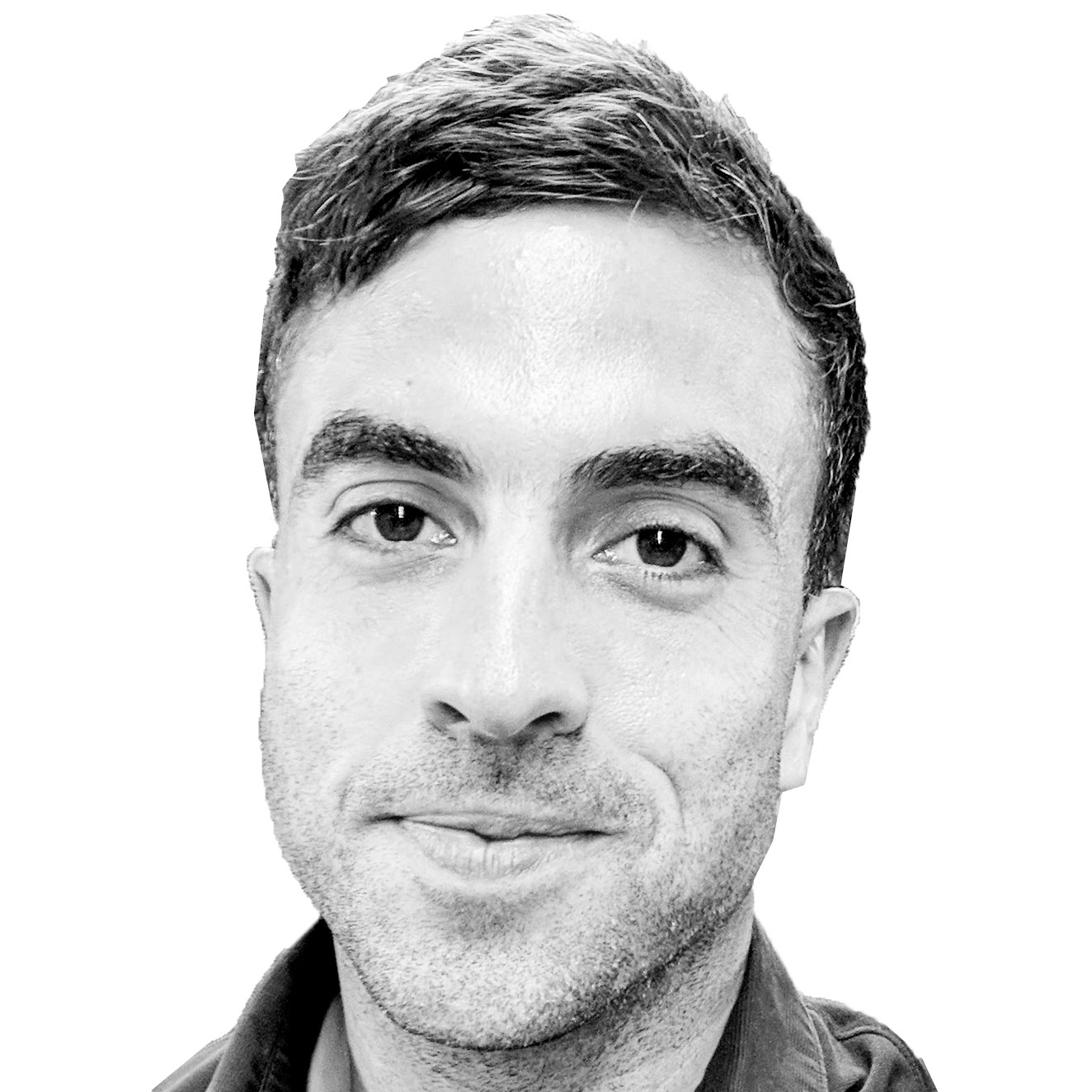If you ask, Alex Weiser smiles and says it’s definitely a coincidence: When he planned the release party for his debut Yiddish-themed album and all the days were purple, he had no idea it would fall on the same night as Israel’s general election.
And so on the night of April 9, while the world watched Bibi Netanyahu win an election against, well, some odds, Weiser orchestrated a night of live music to introduce the world to his latest work. Some of the performance was his own creation and some he’d brought in from the archives of the YIVO Institute for Jewish Research in Manhattan, where he works by day as director of public programs. Weiser wrote all of the music for the album and chose the Jewish texts and poems accompanying each selection, the words sourced from famed Yiddish poets like Anna Margolin and Avrom Sutzkever. He wasn’t thinking much about Netanyahu that night, and that’s somewhat the point of his passion project: to seek truth and meaning “amidst life’s transience and tumult, with secular Jewish poetry as a departure point,” he wrote in a blog about the album.
“I think that people don't understand Jewish identity,” Weiser told me last week when we spoke in his office at YIVO, one of five organizations making up New York City’s Center for Jewish History. Not only did he aim to distinguish Yiddish culture as art in the form of composition and sung poetry, but he would also emphasize that much of its output in past centuries—from literature to theater and philosophy—was secular.
"It challenges a lot of the stereotypes. Yiddish isn't just the language of Yeshiva boys," he mused. “It's also the language of poetry." It’s also the language of “iconic” Jewish dishes and likewise popular theater.
And it’s also a source of refuge and sanctuary for Jews who seek their own identity and meaning in the modern binary of American Jewry. On one side, they can choose unwavering support of Israel, politically and otherwise, as a bastion of democracy and righteousness in the Middle East. And on the other, they can choose what often is eventually considered anti-Zionist views that sometimes touch upon movements like BDS and paint them as anti-Semitic. There is little gray between the two options for American Jews. It’s simply unpopular to exist close to any middle and conversations tend to force participants into one of those buckets.
Centuries of Yiddish thinkers and their work, however, offer just the sort of alternative ways of thinking some Jews might be seeking. It’s in that wealth of art and prose that some new possibilities emerge, ones that could be hard to imagine for many Jews today. That might be because Yiddish was “politically silenced,” says Zohar Weiman-Kelman, an assistant professor at the Ben Gurion University of the Negev in Israel.
“Hebrew wasn’t necessarily going to be the language of Jewish nationalism or the State of Israel,” she told me last Sunday against a background of whistling wind and static—she was riding her scooter from Tel Aviv to a pro-transgender rights demonstration in front of the city’s Education Ministry. Weiman-Kelman is the author of Queer Expectations: A Genealogy of Jewish Women’s Poetry, which explores a largely obfuscated universe of last century and 18th-century poetry in English, Hebrew, and Yiddish. The subject’s women poets and thinkers—Anna Margolin among them, whose poems appear in the first and second-to-last selections of Alex Weiser’s album—questioned and sometimes challenged the heteronormative realities set upon them.
“In finding women’s writing, Yiddish writing, and women’s writing in Yiddish,” Weiman-Kelman told me, she found an “unfolding of history that was so important but not necessarily considered to be what had shaped our present.” It is that reinterpretation of the past that Yiddish therefore offers, she’d argue, adding that her and Weiser’s projects have “vital content to offer that can be discovered.” She was careful to emphasize that just like Hebrew was one of many options for an Israeli tongue, Yiddish is one of many Jewish perspectives. Others have been marginalized as well, like Mizrahi Jewish history, Ladino history, and Jewish and Arabic collaborations, to name a few.
Other scholars see conflict in looking for modern meaning through a lens into Yiddish art and literature, considering its unpleasant past.
“When it becomes ideological,” Harvard Professor Emerita Ruth Wisse told me, “it becomes problematic.” Wisse is Harvard’s Martin Peretz Professor of Yiddish Literature and Comparative Literature. To list a few accomplishments, she introduced Yiddish to McGill University in the 1960s and helped popularize it later at Harvard, and according to Weiser is “perhaps the world expert on Avrom Sutzkever,” another poet alluded to in his album. Wisse has a different take on modern Jewry and liberalism than Weiman-Kelman, having penned 2007’s If I Am Not for Myself: The Liberal Betrayal of the Jews.
She told me she accepts that “very good things emerge in Yiddish theater, literature, and so forth,” but also that she’s “not a romantic” about it.
“To pretend that it can be the repository of Judaism in any way, that it can serve ideologically in any way—this is very dangerous,” Wisse said. “The role of Yiddish, when it’s conscripted for something else, can be conscripted for evil. Yiddish was used to kill off Jewish religion and peoplehood,” she said, citing as examples the Soviet Union’s reliance on Yiddish writers to propagate anti-Semitic tropes and vanquish political adversaries.
As far as Wisse is concerned, an anti-Israel movement of that sort is inherently anti-Jewish—and similar and more modern anti-Israel movements are similarly anti-Jewish—and that there’s no response to them except complete and absolute resistance.
“There’s no middle ground. The reason it’s always right to be on the side of the Jews is not so much because of Judaism but because of who’s arrayed against the Jews,” she said. “All the forces that are anti-Semitic are among the worst forces.”
The 29-year-old Weiser told me that in his art he finds a way to reach out for meaning without having to constantly tackle the issues Wisse and Weiman-Kelman talked to me about. It in itself can be a refuge for him.
“Art is that place,” he said. “Yiddish is an avenue, and art in general is that place.” Growing up, Weiser listened to classic rock with his dad in their Lower East Side apartment in Manhattan, where his parents have lived since the 1980s.
"We would sit down together on weekends and listen to whole albums together,” he remembered, examples including Led Zeppelin, Elton John, David Bowie, and The Who, among others. “We’d sit down, turn the lights off, and listen to an entire album." His passion took off after he started studying classical music in high school. Later, he earned his bachelor’s degree in music composition from Yale University and his master’s degree in music theory and composition from New York University. And through that education and his surprising interest and immersion in Yiddish history and culture at YIVO, Weiser is only just beginning.
His next project is a collaborative opera: State of the Jews. It’s about Theodor Herzl, who’s most commonly remembered as the founder of modern Zionism. Like his debut album, the opera is supported by a commission from Roulette, which supports multi-disciplined artists. Weiser will perform the first act of the opera on June 18, a week after he turns 30.
“It’s about getting into the emotions, the motivations — in a historical moment. It’s not about taking sides about political issues that take place two generations later,” he says, adding, “It’s an opera about politics but it’s not a political opera.”
We both laugh but he’s earnest.
“That’s why this is interesting to me,” he says and means to include his album and the opera and all of his work. “It throws into a loop this whole binary.”







